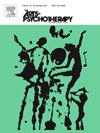Beneficial and harmful music for substance use disorder clients: Implementation of the musical presentation technique
Abstract
Research shows that while music has potential therapeutic benefits for people coping with substance use disorder (SUD), it also has potential to hinder recovery by inducing substance cravings. This issue is especially important regarding formerly incarcerated individuals (FIIs), for whom the rate of drug-related death due to SUD is particularly high. This qualitative study explored the meaning of a music-based intervention for FIIs and examined its potential benefits and harm. Intervention included a short-term group music intervention for 15 FIIs coping with SUD by employing the musical presentation technique. Interpretative phenomenological analysis of interviews after the intervention yielded three themes: music as a way to recruit inner resources relates to the ability of music to provide strength and hope and the ability of imagination to alleviate loneliness; music as a vehicle for beneficial interpersonal relationships relates to group support and feelings of being understood; self-awareness of potential harm relates to personal music that triggers memories of past substance use and stimulates cravings. This awareness enabled participants to avoid listening to such music. Findings are discussed in light of the recovery capital perspective, with human capital, social capital and cultural capital emerging from the findings. Implications for recovery programs are presented.

 求助内容:
求助内容: 应助结果提醒方式:
应助结果提醒方式:


